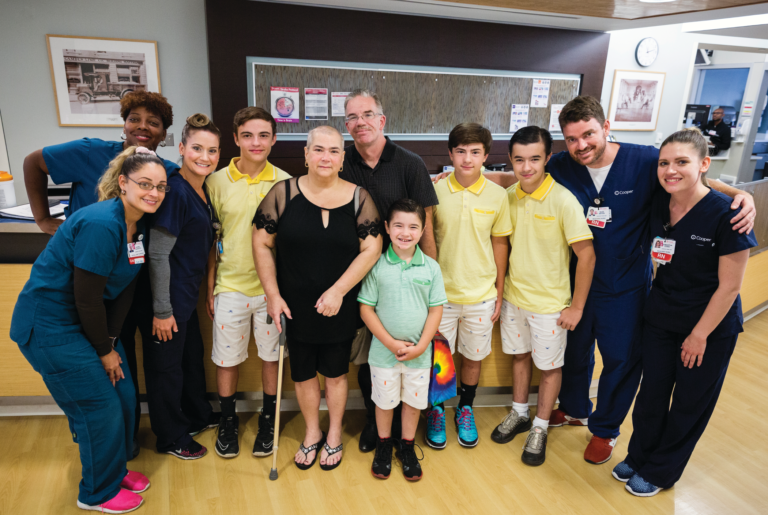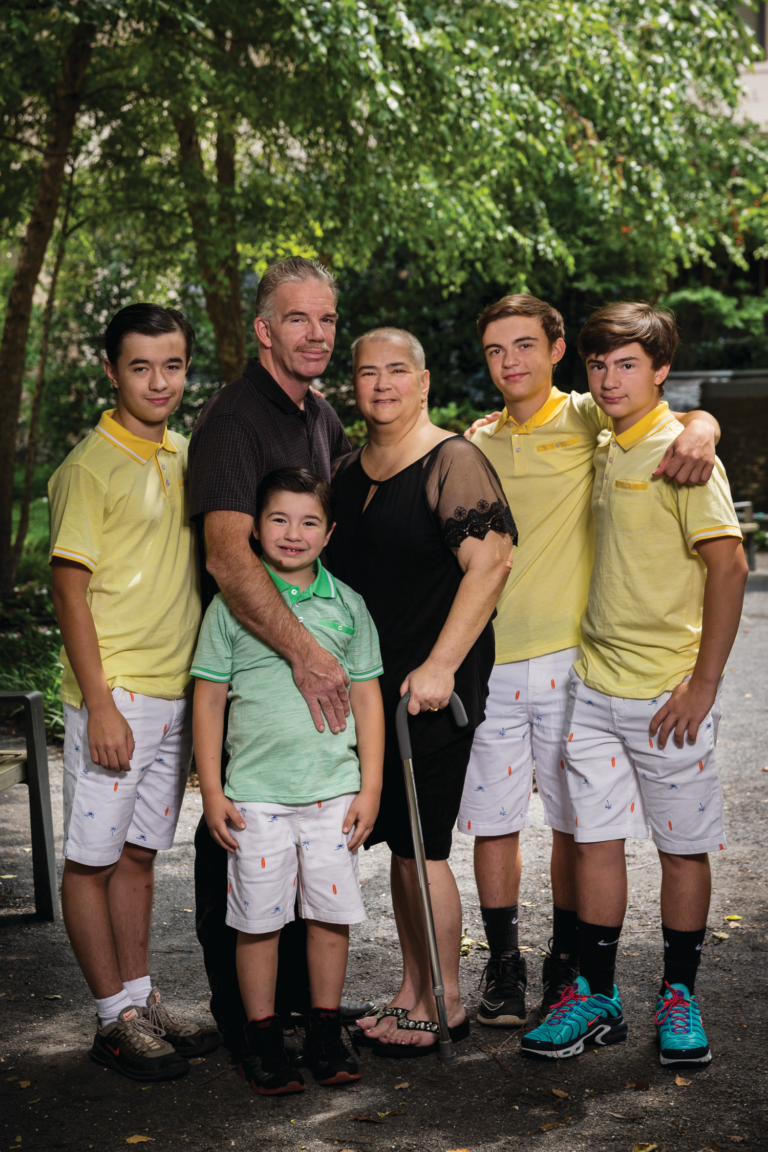Tudor G. Jovin, MD, and Cooper’s neurosurgery team, led by Alan R. Turtz, MD, treat a devastating stroke with outstanding outcomes.

Judith and her family brought gifts to members of the ICU team one month after she was discharged from Cooper.
In early May, Judith Startare was at home, having a normal day. “My three sons were at school,” recalls Judith. “I was home cleaning and I went to step into the shower. That’s the last thing I remember.”
Judith woke up in the intensive care unit (ICU) of Cooper University Health Care. She suffered from a ruptured aneurysm that resulted in a stroke that released blood into the space around her brain. Commonly called a subarachnoid hemorrhage, this is a life-threatening type of stroke.
Judith was initially brought to a community hospital, where the team immediately determined that her stroke was too complex for them to treat. The nurses stabilized her and prepared for a transfer. She was medevacked to Cooper, an academic medical center and the first hospital in South Jersey to be certified by the Joint Commission as an Advanced Comprehensive Stroke Center. With this designation, Cooper is among an elite group of hospitals focused on specialized care for the most complex strokes.
When she arrived at Cooper, Judith was treated by Cooper’s stroke team, led by Tudor G. Jovin, MD, Chief and Chairman of Cooper Neurological Institute, and Cooper’s neurosurgery team, led by Alan R. Turtz, MD, Chief of the Department of Neurosurgery.

Judith Startare with her family.
Dr. Jovin, an internationally renowned expert in the treatment of stroke and cerebrovascular disorders, joined Cooper from the University of Pittsburgh School of Medicine and the Center for Neuroendovascular Therapy at the University of Pittsburgh Medical Center in April 2019. He was one of the nation’s first interventional neurologists, a subspecialty that uses minimally invasive, image-guided techniques to treat complex conditions, such as acute stroke, carotid stenosis, and intracranial aneurysm.
“Judith presented with two aneurysms in different locations in the brain,” recalls Dr. Jovin. “Because we could not be certain about which was responsible for the bleeding, we had to treat both.”
When Judith arrived at the ICU, Dr. Turtz and the neurosurgery team drilled a small hole into her skull to relive the pressure in her brain caused by the bleeding. Dr. Jovin then performed two complex procedures to treat Judith’s condition, stent-assisted coil embolization and endovascular coiling. Both techniques are minimally invasive. A catheter is inserted into the body through a very small incision and passed through until the aneurysm is found. Coils are then released to seal off the aneurysm and prevent further damage.
Judith is home and has very few side effects from the stroke. Her vision is slightly impaired, and she works with a physical therapist to regain strength, but her family cannot believe the amazing recovery she has made. The team expects her to be 100% recovered within a year.
“Judith’s outstanding recovery was due in large part to the strength of our ICU nurses,” remarks Dr. Turtz. “The stroke, neurosurgical, and ICU teams at Cooper work together on each patient’s case to ensure the best possible outcomes.”
“I want to thank Dr. Jovin and the team at Cooper,” Judith says. “I owe them more than I could ever repay them. I am back home with my boys, where I belong, and I can still be their mom.”
To schedule an appointment with a Cooper Neurologist or for more information, visit CooperHealth.org/Stroke or call 800.8.COOPER.
